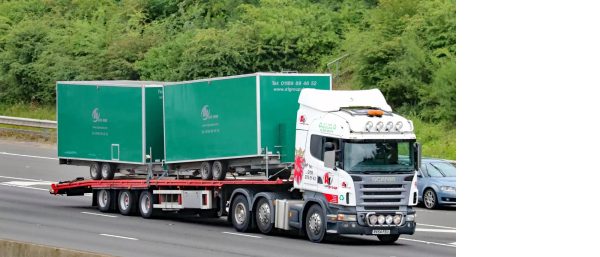With a year until the UK’s departure from the European Union, the Freight Transport Association is urging the government to up the pace on the negotiation of trading arrangements, or risk damaging integrated supply chains.
 “Twelve months is a very short time in business terms,” says Pauline Bastidon, Head of European Policy at FTA, “and with such a focused timescale, it is unrealistic to expect logistics companies and supply chain managers to wait until the eleventh hour to learn what their new operational arrangements will be and change everything at the last minute. There are too many open questions, when so much is at stake, and if industry is to keep Britain trading, clarity on key areas is needed in the next three months, not 12.
“Twelve months is a very short time in business terms,” says Pauline Bastidon, Head of European Policy at FTA, “and with such a focused timescale, it is unrealistic to expect logistics companies and supply chain managers to wait until the eleventh hour to learn what their new operational arrangements will be and change everything at the last minute. There are too many open questions, when so much is at stake, and if industry is to keep Britain trading, clarity on key areas is needed in the next three months, not 12.
“Arrangements for customs, transport or standards are still unclear, and no solutions to manage borders so that disruptions may be avoided have been agreed yet. Logistics companies and supply chain managers also need urgent clarity on what the UK’s future immigration policy will look like.
“The political confirmation of a transition period is a welcome relief to companies, but this needs to be set in stone sooner rather than later. We also need to ensure that industry is provided with sufficient details early enough to be able to adapt to new arrangements in time. A 21-month transition period is short, and we should not become complacent: urgent clarification and solutions are needed now, and not at the 11th hour, to ensure that we do not face another cliff edge in January 2021.
“Industry can adapt to many changes and new realities and logistics is, by nature, agile and resilient, but it takes time to change processes and procedures, and this requires full clarity, as no company can adapt in an adequate way to the unknown,” continues Ms Bastidon. “Currently, logistics operates relatively seamlessly, with minimal customs checks and no need for lengthy inspections at the borders that can delay lead times significantly. Two extra minutes spent checking each truck during peak hours could result in lengthy queues of almost 30 miles on each side of the border, which could have important knock-on effects on the wider transport networks and on supply chains that often rely on just-in-time processes.”
FTA is also concerned about the knock-on effect of any new arrangements on smaller organisations which may be part of bigger supply chains, but which often have no direct experience of international trade beyond the EU and EFTA, and for which dedicated support may be required to explain and assist with the new trading situation.
And, as Ms Bastidon continues, the access for transport needs to be confirmed urgently: “Arrangements for aviation, road haulage and rail freight are still unclear at this stage. We still do not know on which basis and how many trucks will be able to cross the borders. In the absence of a liberalised agreement for road transport, industry will have to rely on a very limited and constraining system of permits which would cover less than 3% of the needs, woefully under what will be required. How can business be expected to trade without transport? That needs to be uppermost in the minds of negotiators as they move on to talks about the future relationship with the EU.
“Urgent clarification is needed on the location of potential checks on goods, on practical customs issues – such as whether the UK will sign up to the Common Transit Convention and what the Customs classification system to be used on the UK side will be, the status of vital European logistics workers following Brexit and more. Integrated supply chains and close trade ties rely on these details to be able to operate effectively after Brexit.
“Whatever happens, the logistics industry is committed to ensuring that the UK can trade efficiently with its nearest neighbours, and we look to government to support the industry over the coming year in ensuring that Britain can keep trading for the future benefit and growth of the nation’s economy.”
With over 17,000 members, FTA is the only organisation in the UK that represents all of logistics, with members from all parts of the logistics industry, including the buyers of freight services such as retailers and manufacturers whose businesses depend on the efficient movement of goods.


